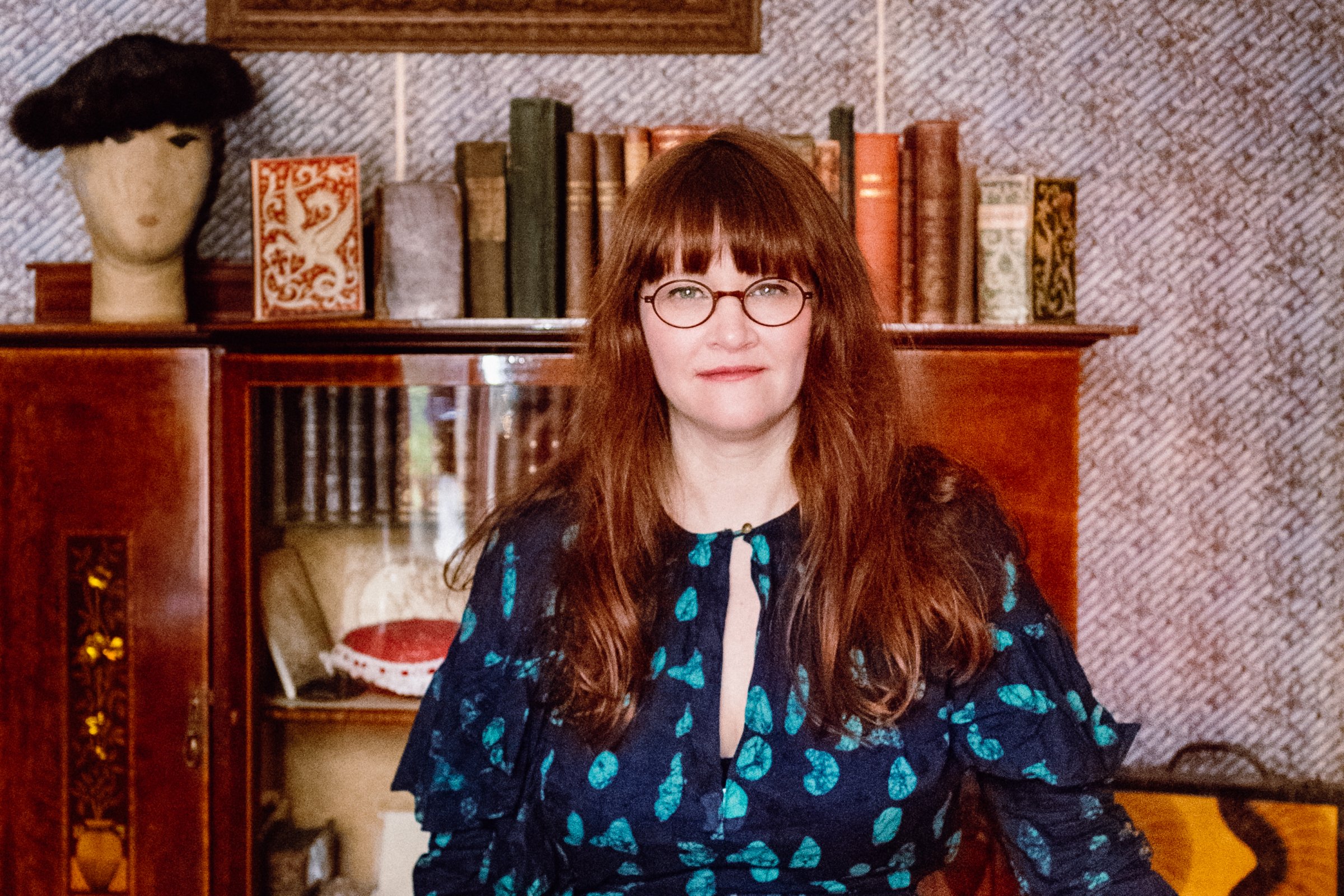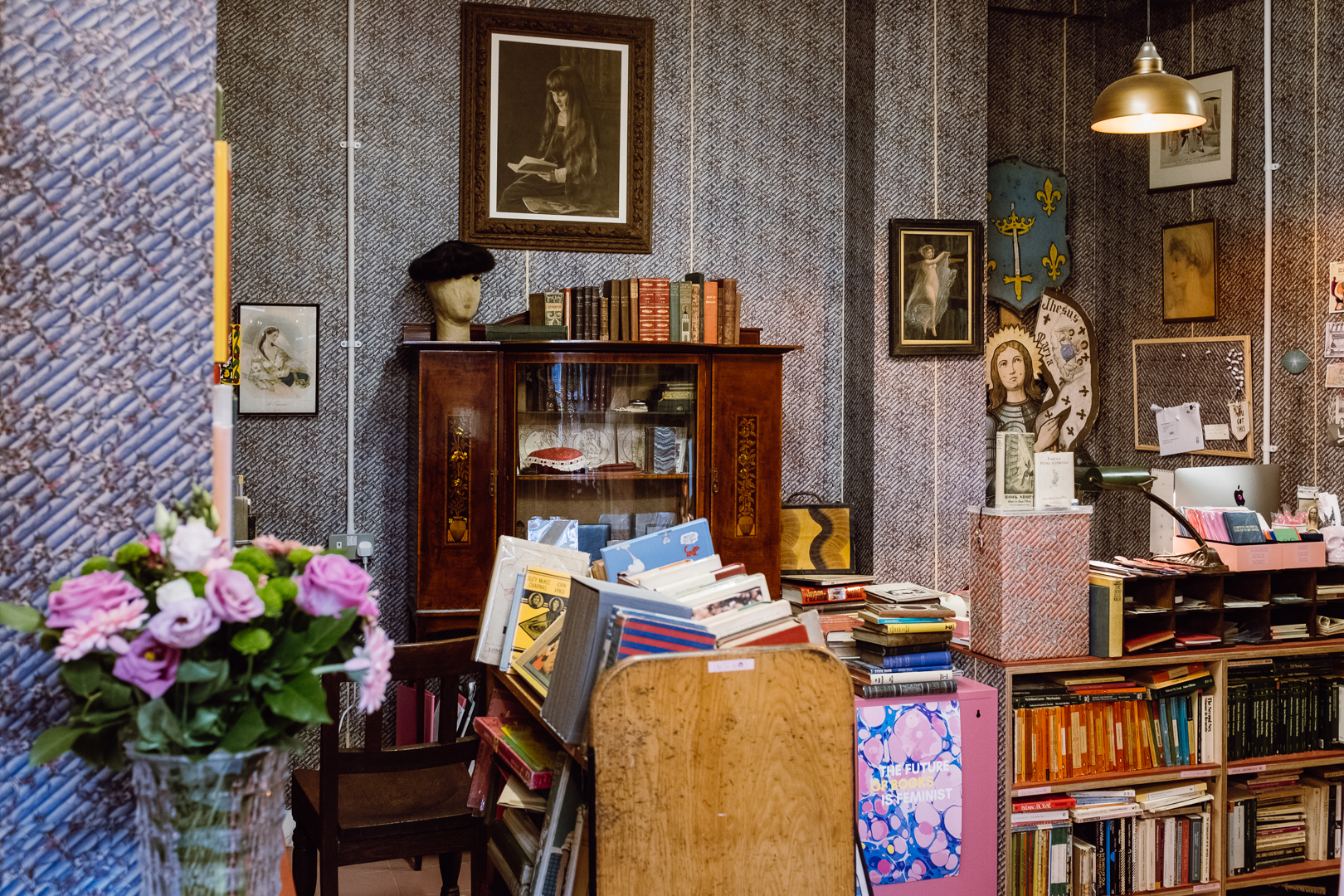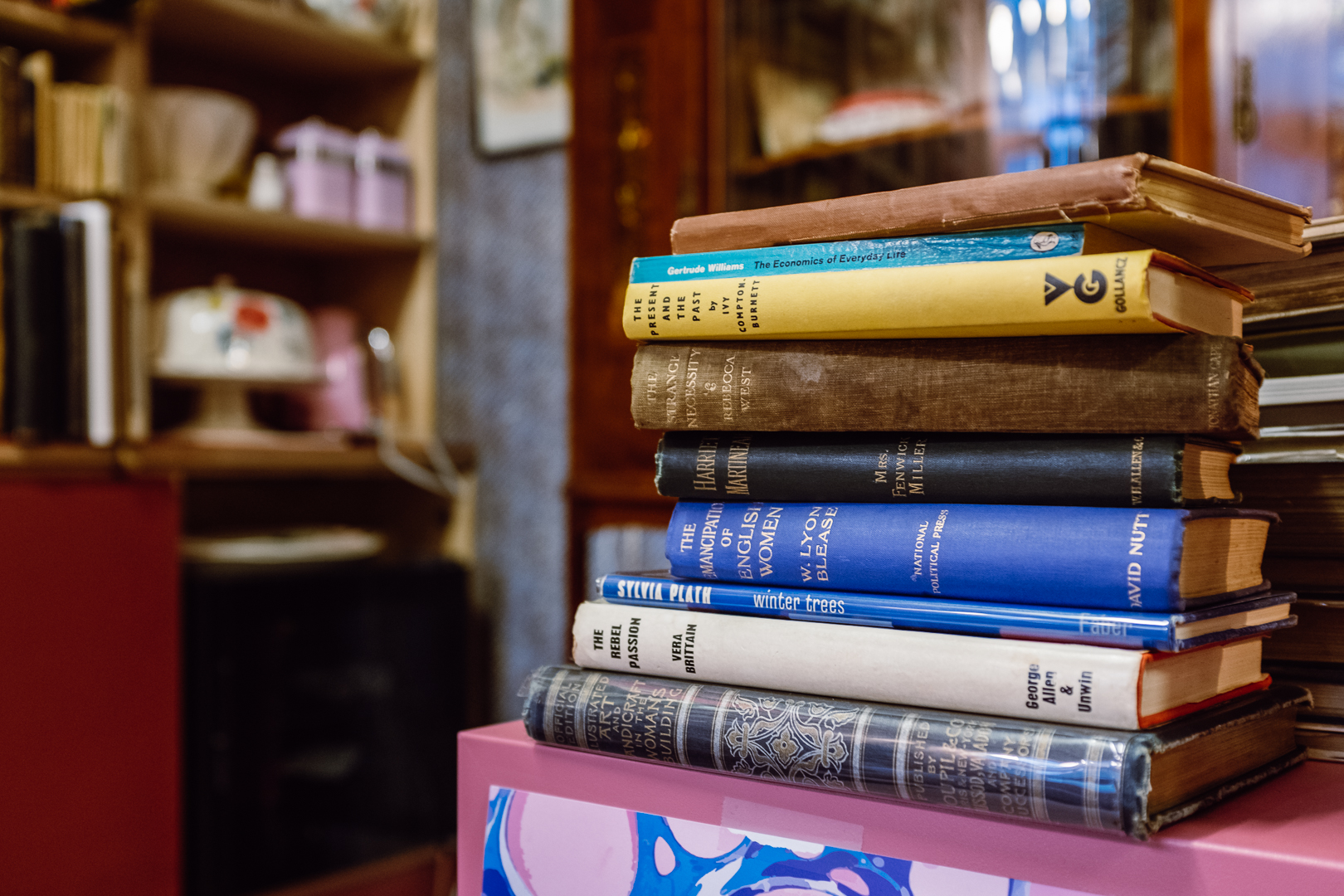
A.N. Devers has always had a fondness for unwanted things. As a child, her family moved around the U.S. a lot, following her father’s postings in the Air Force. In each new town, they’d go to yard sales, where Devers would dig through other people’s cast-offs and come up with interesting items to take home.
A few decades later, that talent for spotting the overlooked is the driving force behind her unusual new bookstore, The Second Shelf.
Tucked away in a peaceful courtyard off the busy streets of London’s Soho, the store almost exclusively offers rare books by women authors – a group that has rarely enjoyed the attention, or the price tag, afforded to male writers. Devers, a writer and book dealer, became obsessed with the discrepancy when, at a book fair in 2015, she saw (mostly male) traders relegating titles by renowned female authors like Joan Didion to the lower shelves and, tellingly, selling them for a tiny fraction of the cost of books by their male counterparts. “We don’t value women’s work the same way we do men’s,” Devers says. “It’s depressing. But it’s also exciting, because I can do something about it.”
After Devers, 42, moved from New York to London – “a great town for people interested in rare books” – in 2016, she started meeting other women in the trade. The idea for The Second Shelf began to take shape. A prolific user of social media, Devers marshalled her thousands-strong following into powerful online attention for her project, which she initially intended as an online store. She raised over $40,000 on Kickstarter and garnered interest from high-profile figures in the book world.
The Second Shelf opened its reddish pink doors in November. Inside, the walls are papered with the kind of patterned end pages you find in beautiful old books, thousands of which are crammed into tall shelves and dark cabinets. Most are first editions, and many are signed and almost all are by women (a handful of male-authored books about women have made it in). The focus is modern fiction – Elizabeth Bowen novels, romances by Rosamunde Pilcher, poetry by Ntozake Shange. But there’s also travel writing, essays, guidebooks and more. Next year Devers’ first book, Train — a non-fiction exploration of trains in American culture published by Bloomsbury — will surely join them.
In collecting these works and promoting them in the Second Shelf’s biannual review, Devers is hoping to correct a historical imbalance in the book trade that has left women authors forgotten over the years. In the U.K., early bookmen (the term for rare book dealers) were “country gentleman who ran estates, and amassed libraries of books to show their wealth and intelligence,” Devers says. There have been some famous bookwomen, she adds, citing Belle da Costa Greene, who built the famous Morgan Library in New York. But for the most part, it has typically been men who decide which books are worth collecting, preserving and passing down to future generations. As in other male-led creative industries of television, film, and the news media, “they focus on themselves,” Devers says.
The effect is a stark absence of women’s work among what society considers to be the most valuable cultural artefacts. In January, the Second Shelf went viral on Twitter after Devers pointed out that only eight books by women appeared in a list, compiled by a trade website, of the 500 biggest sales at auction in the books and paper field in 2018. Even among more recently published works, a 2018 study found that books by women are sold for on average 45% less than books by men. “In a capitalist society, where we put our money shows where we see value. We’ve been taught to find value in something really narrow,” Devers says. “It’s time to explore something different.”

Devers’ brick-and-mortar shop – made possible by a good deal on the rent from local estate agents – is the physical site of a mostly online movement pushing back against the status quo. (The online store, which Devers promised on her Kickstarter, is on its way). The Second Shelf is named for a 2012 New York Times essay by Meg Wolitzer critiquing the sexist treatment of women’s fiction. Since then, many have promoted the idea of reading only books by women for a year, while student activists have increasingly called on universities to diversify their largely white and male reading lists.
These days she tours rare book fairs in search of hidden gems that have received little attention. The works that fly off the shelves fastest are those by women of color. “If women’s work has been relegated, then that’s even more true for women who aren’t white, which makes it’s hard for my customers to find elsewhere,” she says. The store has twice sold out of works by Nigerian-born novelist Buchi Emecheta. Devers quickly sold 14 first editions of works by Miriam Tlali – the first black South African woman to get published in her country. Devers initially came across her in a charity shop and was shocked she had never heard of her – today she is out of print, even in South Africa. “I can’t keep up with the demand, which means there is a demand. That’s heartening.”
Less heartening is the reaction some people have to Devers’ mission online. While social media helped power the birth of her store and brings in most of her customers, it has also brought trolls who feel free to share their (often offensive) thoughts on a women’s-only bookstore. Devers says it doesn’t happen constantly, but when it does she will often engage to explain the importance of what she’s doing. “Sometimes it’s exhausting, but I disagree with that idea that you can should just ignore them until they go away,” she says. “People say you should, but if you ignore them, there’s no counterpoint.”

Some of the trolls are men taking issue with their perceived exclusion from the store. But much of the online abuse The Second Shelf gets comes from TERFs – an acronym for Trans-Exclusionary Radical Feminists, a group which refuses to include trans women in its definition of women and which many say is more prominent in the British feminist movement. On Twitter, TERFs have taken issue with Devers’ stocking of work by trans writers, such as Welsh historian and travel writer Jan Morris, and model April Ashley, who became one of Britain’s first trans public figures. “I’m aware that I’m operating in intellectually charged times around what gender is,” she says. “But I guess wasn’t prepared for how controversial some people would find it: I sell books by and about women, as they define themselves. I want everyone to be comfortable coming into my store.”
As in any good bookstore, customers stepping on to the pale pink-tiled floor of The Second Shelf are greeted by staff members excited to share their wealth of literary knowledge and recommendations for people at different stages of their book collecting career (there are Penguin Classics for $8, newer books by Alison Lurie and Rachel Cusk for $25–40, first edition Elizabeth Bowens for around $50, right up into the hundreds for work by legends like Virginia Woolf). Devers is no exception, constantly breaking into tangents on her favorite stock items and rattling off the life stories of their authors. “It’s frustrating that there are so many great books out there and no one is looking for them,” she says. Now, at least, we know where to start.
Correction, March 5
The original version of this story misstated the name of the librarian who built up the Morgan Library. It is Belle da Costa Greene, not Bella de la Costa Greene.
More Must-Reads from TIME
- Introducing the 2024 TIME100 Next
- The Reinvention of J.D. Vance
- How to Survive Election Season Without Losing Your Mind
- Welcome to the Golden Age of Scams
- Did the Pandemic Break Our Brains?
- The Many Lives of Jack Antonoff
- 33 True Crime Documentaries That Shaped the Genre
- Why Gut Health Issues Are More Common in Women
Write to Ciara Nugent at ciara.nugent@time.com